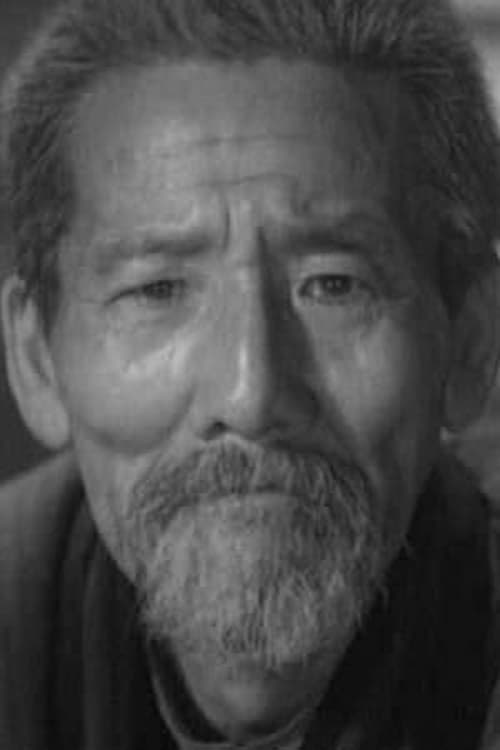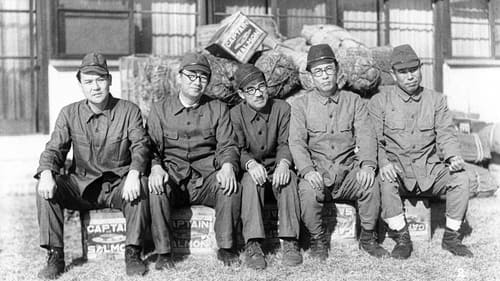
Ryuta and Mineo Komatsu are brothers, both yakuza (gangsters). Mineo, although complicit in crime, even murder, wants out of the gangster life, hoping to become a successful singer instead. Ryuta loves his brother, but Mineo's possible defection presents problems for the gang, and Ryuta realizes he must kill his brother if he wants to survive.
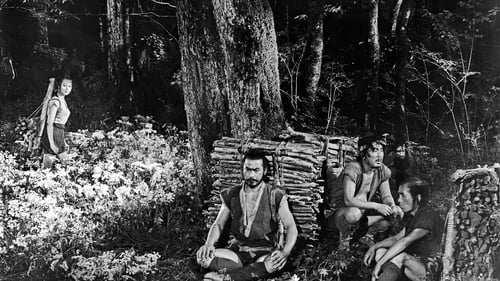
Old man in front of sign (uncredited)
Ambientado no século dezesseis no Japão, um solitário samurai escolta uma jovem princesa fugitiva através do território inimigo.
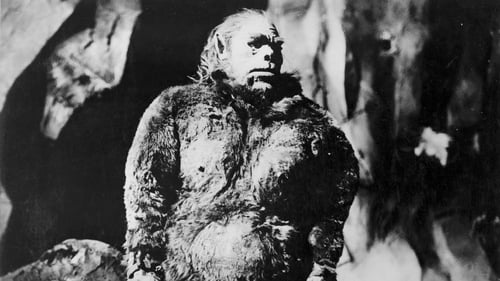
Mountain Tribe Leader
An American scientist tells two colleagues about the finding of an abominable snowman living in the Japanese alps, where it is worshipped by a remote tribe as a god, and how it was discovered by modern man after it raided a ski-ers' shelter following an avalanche, killing all inside. This is an adaptation of the Japanese film Ju Jin Yuki Otoko with added American-made footage, narration and music track.
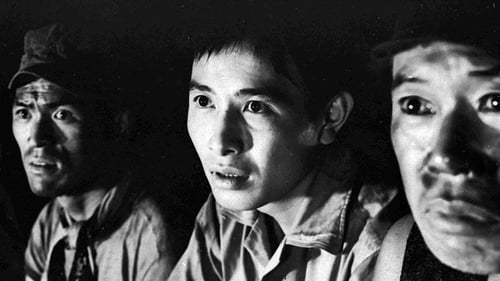
Based on a 1956 television feature on Japan’s national network, NHK, this is one of Uchida’s rarest films. A socially conscious drama with a contemporary backdrop, Dotanba focuses on the attempts to rescue a group of trapped miners. The title is a figure of speech — (essentially “last minute” or “eleventh hour”) — that refers to a situation of peril. The film boasts a script co-written by Uchida and Akira Kurosawa’s frequent screenwriter, Shinobu Hashimoto, and stars Kurosawa’s frequent star Takashi Shimura.
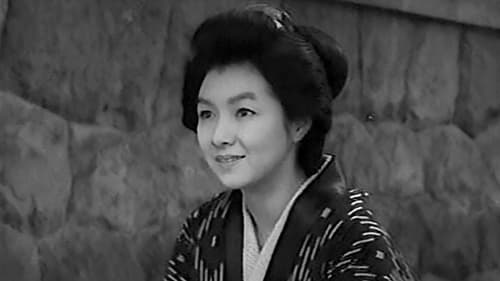
Kinshichi
A woman marries, gives birth to a stillborn child, and divorces, falls in love with a hotel-keeper, only to find herself subordinated to his drive for success, takes up with a tailor who cannot console himself with her strong personality.
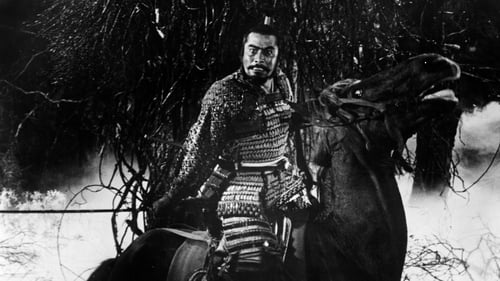
Military Commander
Japão, século XVI. As guerras civis sacodem o país. Dois valentes samurais, os generais Washizu Taketori (Toshirō Mifune) e Miki (Minoru Chiaki), regressam aos seus domínios depois de uma batalha vitoriosa. No caminho, uma misteriosa senhora profetizao futuro de Washizu: o guerreiro se converterá no Senhor do Castelo do Norte. A partir deste fato Washizu, auxiliado por sua esposa Asaji Isuzu Yamada, se vê imerso numa trágica e sangrenta luta pelo poder.
Trono Manchado de Sangue (蜘蛛巣城, Kumonosu-jō?, literalmente "Castelo Teia de Aranha") é um filme japonês de 1957 dirigido por Akira Kurosawa, que transpôs a obra Macbeth de William Shakespeare para o Período Sengoku japonês (séc. XV - XVI).

Old Man on Hill on Oto Island (uncredited)
Em 1956 o filme japonês "Gojira", primeiro filme do Godzilla, foi editado e re-lançado nos EUA. Mudanças na história incluem um novo personagem: o repórter Steve Martin, interpretado pelo ator canadense Raymond Burr, que virou protagonista e narrador da história, relatando a invasão do gigantesco monstro a Tóquio.

The story of Yoshinaka during the tumultuous period of warring related to us in the Heike Monogatari. Close in setting to Kinugasa’s famous Gate of Hell (1953).

This adaptation of a Hideji Hojo novel, about the historical uprising of the Kuroda clan in 1633, is told through the eyes of retainer, Daizen. As his clan’s new leader, Tadayuki, becomes increasingly militant in his opposition to the Tokugawa shogunate, Daizen is forced to reconcile his loyalty to the clan with his loyalty to Tadayuki, who seems dead set on entangling the clan in destructive conflict. The Kuroda Affair’s mise-en-scène is said to have influenced future Toei director Eiichi Kudo. The film also features two of the greatest stars of Japanese period cinema, Chiezo Kataoka and Ryutaro Otomo.
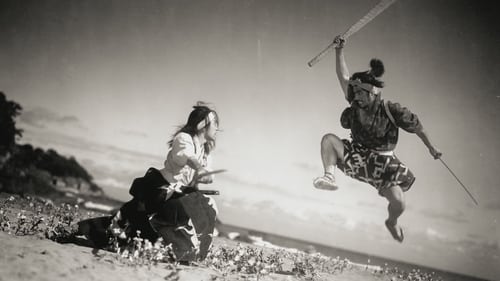
Old Priest Nikkan (uncredited)
Neste terceiro filme da Trilogia do Samurai de Hiroshi Inagaki (baseado no livro "Musashi" de Eiji Yoshikawa), Musashi (Toshirô Mifune) é desafiado pelo confiante e habilidoso Sasaki Kojiro (Koji Tsuruta), com o qual duelará dentro de um ano. Neste período decide viver nos arredores de uma vila cultivando legumes, enquanto ainda é perseguido por Otsu (Kaoru Yachigusa) e Akemi (Mariko Okada), ambas apaixonadas por ele. Conforme a data do duelo se aproxima, Musashi é forçado a tomar uma decisão que concilie ou não seus sentimentos por Otsu e sua paixão pelo caminho do guerreiro, ao mesmo tempo que se prepara para o maior desafio de sua vida.
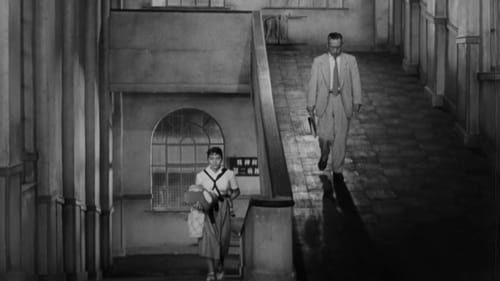
Workers' Older Family Member
Kiichi Nakajima, um idoso proprietário de fundição, convencido de que o Japão será afetado por uma guerra nuclear iminente, resolve transferir sua família para a segurança no Brasil. Sua família decide que seja declarado incompetente e o Dr. Harada, um conselheiro do Tribunal Doméstico, tenta arbitrar. (e 12 - Estimado 12 Anos)
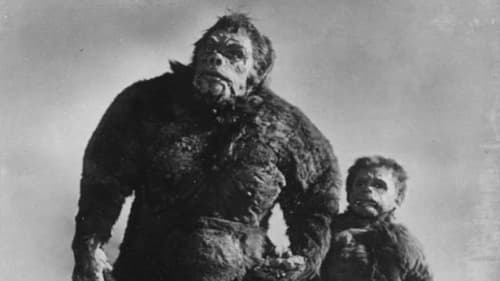
Tribal Chief
Three competing parties all race against time to track down an elusive creature known only as the Snowman.

Following the tragic death of his father, a young boy's family trains his horse to compete in the local derby.
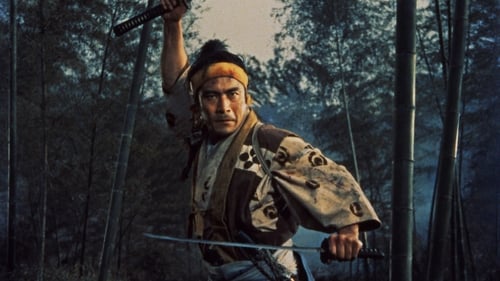
Old Priest Nikkan (uncredited)
Aqui a história se passa entre 1600 e 1612, no Período Edo. Segundo filme que retrata a vida do lendário samurai e estrategista Musashi Miyamoto, onde são retratados vários dos duelos históricos de um dos espadachins mais conhecidos do mundo. É dito que Musashi lutou em sessenta duelos e nunca foi derrotado.
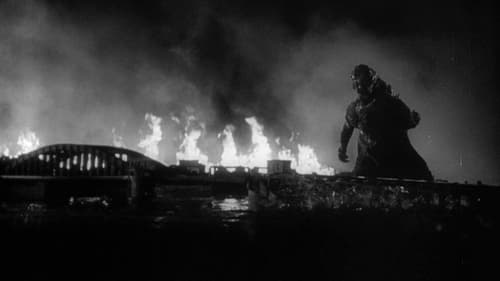
The Old Fisherman (uncredited)
Um gigantesco réptil mutante surge em virtude de testes nucleares. A monstruosa criatura cria um rastro de destruição no seu caminho até Tóquio, que corre o risco de ser totalmente destruída se o monstro não for detido.

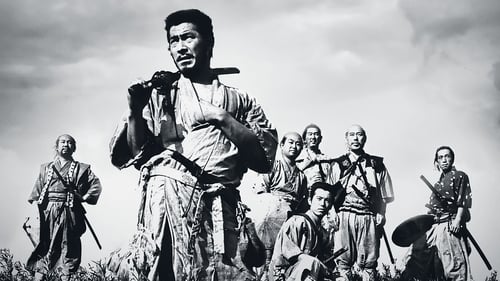
Gisaku, the Old Man
No século XVI, durante a era Sengoku, quando os poderosos samurais de outrora estavam com os dias contados, pois eram agora desprezados pelos seus aristocráticos senhores. Kambei (Takashi Shimura), um guerreiro veterano sem dinheiro, chega em uma aldeia indefesa que foi saqueada repetidamente por ladrões assassinos. Os moradores do vilarejo pedem sua ajuda, fazendo com que Kambei recrute seis outros ronins (samurais sem mestre), que concordam em ensinar os habitantes como devem se defender em troca de comida. Os aldeões dão boas-vindas aos guerreiros e algumas relações começam. Katsushiro (Ko Kimura) se apaixona por uma das mulheres locais, embora os outros ronins mantenham distância dos camponeses. O último dos guerreiros que chega é Kikuchio (Toshiro Mifune), que finge estar qualificado mas na realidade é o filho de um camponês que almeja aceitação.

Jusaku Kawanabe
Story about a poor Japanese woman living near an American army base who resorts to prostitution.

A married couple looking for an apartment move in with the husband's co-worker, a widower. The husband becomes jealous of the widower and his wife.

Kira Uenosuke
Jidai-geki by Kiyoshi Saeki

1950s Japanese comedy.
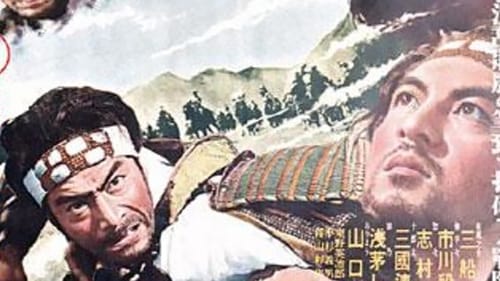
Soldiers Hayate and Yaheiji secretly escape from their besieged castle. Hayate has left behind his lover, Kano. On his way, Hayate is wounded and cared for by O’Ryo, who falls in love with him. But when Hayate accidentally kills her caretaker, he flees, with O’Ryo in pursuit. Subsequently, Hayate's comrade Yaheiji falls in love with Oryo. Kano, the lover left behind by Hayate, believes him dead, and becomes involved with another soldier, Jurota. When Jurota defects to the opposing army, he takes Kano with him. A double set of love triangles has developed, wherein each man and each woman loves one and is loved by another. Finally only combat and self-sacrifice can untangle the weave.
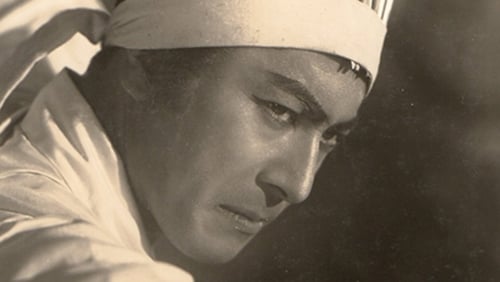
The famous showdown at Kagiya corner has been told many times, but never before with the realism and intensity of this version scripted by Kurosawa Akira and starring Mifune Toshiro as the famed swordsman who must face his best friend as they are forced to take opposite sides in a vendetta caused by the murder of a family member. Told mostly in flashback as the avengers await the arrival of their quarry, this film displays true heroism in the face of fear as most of the combatants, while of the samurai class are not skilled swordsmen. They contrast sharply with the true warriors involved in this battle. Araki Mataemon (Mifune), who was not only a direct student of Yagyu Munenori, but the founder of his own sword style under the Yagyu name is a powerful force ready to assist his brother-in-law against the murderer's allies that include not only another noted sword teacher, but the deadly spear of Katsumi no Hanbei.
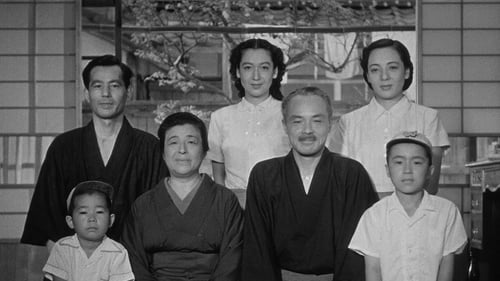
Uma família escolhe um marido para a sua filha de 28 anos Noriko, mas ela surpreendentemente tem os seus próprios planos. Noriko mora em Tóquio no pós-guerra com sua extensa família. Embora ela esteja satisfeita com sua carreira e seus amigos, a sua mais tradicional família se preocupa com o fato de ela ainda estar solteira, aos 28 anos. Quando Takako, 40 anos, faz uma proposta de casamento, a família de Noriko a pressiona para aceitar. Mas quando seu amigo de infância Kenkichi, agora viúvo retorna ao bairro, ela percebe que seu coração a está levando em outra direção. (e Livre - Estimado Livre)

(uncredited)
Though recognized worldwide almost exclusively for his colorful kaiju fare, director Ishirō Honda (Godzilla, Rodan, Mothra) was a natural humanist with a particular understanding of the relationship between people and their social environs. His debut fiction feature, The Blue Pearl (Aoi Shinju) – virtually unseen in the west until now – depicts the melodramatic, but keenly-observed interplay between a young man from Tokyo and two ama (pearl divers; literally “women of the sea”) in a superstitious coastal town. Though raised within the same tradition-bound crucible, the two women – Noe and Riu – are portrayed as diametric opposites; the former meek but affectionate, the latter strong-willed but jaded by a tryst with metropolitan life. Nonetheless, Honda provides equal weight to their desires and their ambitions to break free from the social mold imposed upon them from birth.
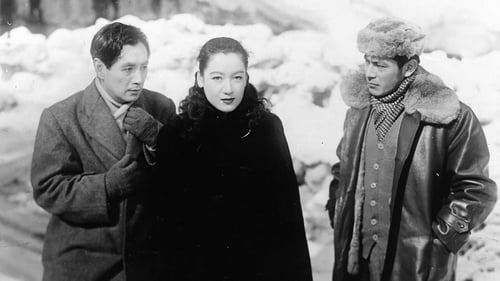
Junpei
Kurosawa utiliza um texto de peso do mestre Dostoiévski. Conheça a história de Kameda, que viaja para Hokkaiko e acaba se envolvendo com duas mulheres. A tragédia acontece após uma perceber que não é amada e decidir tomar providências drásticas quanto a sua situação. (e 12 - Estimado 12 Anos)

The Ueki family may not be wealthy, but smiles are never in short supply. The father is awarded prize money for 25 years of service to his workplace, but has it stolen on the way home from the ceremony...
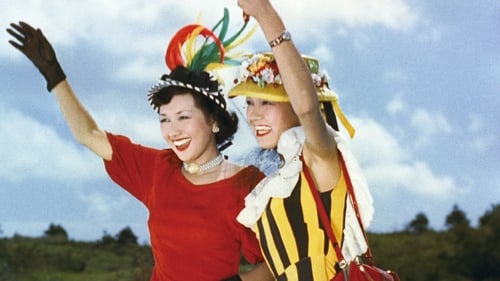
A girl who'd left her hometown for the exciting adventure of the big city returns home years later for a visit, soon somehow causing scandal.

Shige'emon Otobe
Jidai-geki by Nobuo Nakagawa. Most likely a star vehicle for Kanjuro Arashi

A romantic melodrama about the shifting relationship between Ryosuke and Miki as their precarious employment and social circumstances shift around them.
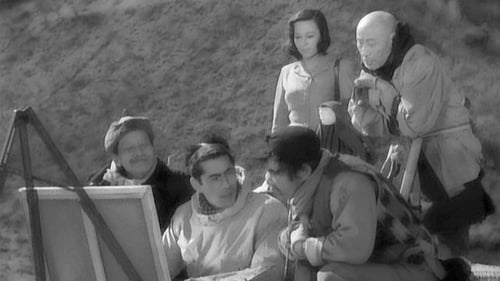
Old Man #1
A celebrity photograph sparks a court case as a tabloid magazine spins a scandalous yarn over a painter and a famous singer.

Kuga
An attempt is made to suppress a journalist's investigation of collusion between a rural police chief and the local gangster bosses.
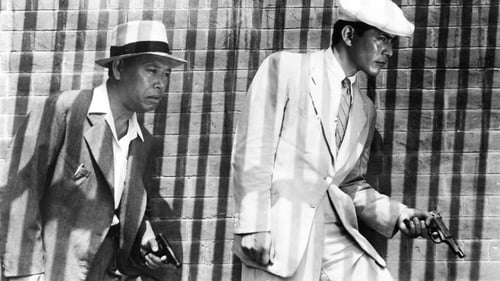
Old Landlord
Murukami, um jovem investigador de homicídios, é roubado em um ônibus e perde sua pistola. Ele começa uma busca insana atrás de sua preciosa arma, sem sucesso, até receber a ajuda de um sábio e mais experiente detetive chamado Sato. Clássico noir do mestre Akira Kurosawa, que redefiniu o padrão de filmes policiais japoneses. (e 12 - Estimado 12 Anos)
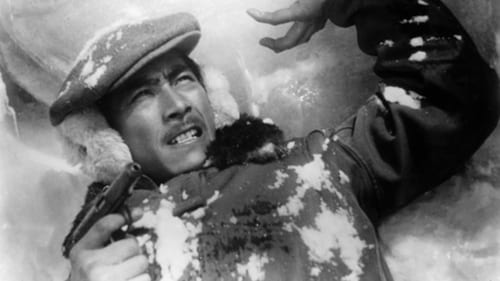
Haruko's Grandfather
Three bank robbers, Eijima, Nojiri, and Takasugi, flee the police and escape into the mountains. At an inn high in the Japanese Alps, Eijima and Nojiri encounter a young woman and her father, as well as Honda, a mountaineer. The inn folk do not realize their guests are wanted criminals and the visitors are treated with great kindness. Honda volunteers to lead them over the mountains, but Eijima's paranoia endangers all of them as they make the perilous trip.
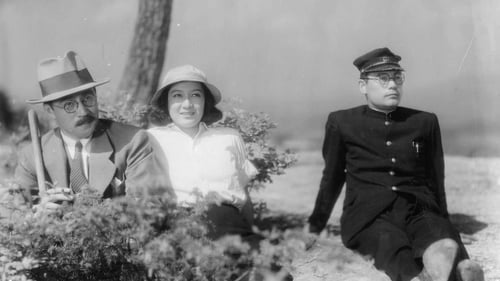
Mr. Noge
Yukie, a filha bem-educada de um professor universitário, fica chocada quando o seu pai é dispensado do seu cargo pelos seus ensinamentos políticos e ainda mais quando o seu amante, um aluno do seu pai, é preso e executado como espião. Ela decide deixar Kyoto para viver com os pais do rapaz na aldeia camponesa. Mas a vida ainda tem muitas lições para ela... (e 12 - Estimado 12 Anos)

Buddhist Priest Saiduchi
In this government-suggested sequel, Sugata again grows as a judo master, and demonstrates his (and by extension, all Japanese) superiority to the foreign warrior.
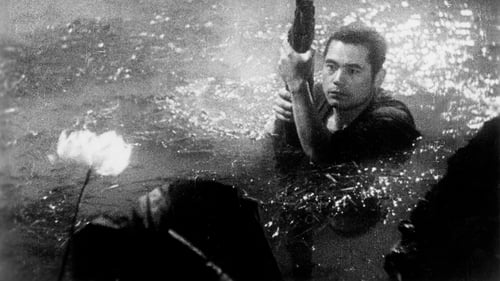
Buddhist Priest
A história de Sanshiro Sugata, um jovem teimoso e forte, que viaja para a cidade para aprender o jiu-jitsu. No entanto, ao chegar, ele descobre uma nova forma de autodefesa, o judo. O personagem principal é baseado em Shiro Saigo, um judoca lendário.

Hiromasa Nomura World War II era film

Set in Qingdao, China, a Japanese company locates an office there and begins work and cooperation with a local Chinese company for business. Many Japanese engineers also move to China, with their families, for the company in order to construct a canal. There are young Chinese resisting the Japanese in this area.

A 1942 Jidaigeki by the veteran jidaigeki filmmaker Kunio Watanabe about the legendary warrior Musashibo Benkei
with Hideko Takamine portraying Minamoto no Yoshitsune (who is, of course, a man).
The film climaxes in the famous encounter/fight btw Benkei and Yoshitsune at the Gojo Bridge.

Hiryûji Murakami
This epic depicts the battle between Uesugi Kenshin and Takeda Shingen. The focus of the story is the struggle by the unit leader in charge of the main supply wagons and the supply troops to transport materiel to the Uesugi army. To this are added episodes involving an itinerant woman.

Jurobei, a kaisen tonya (wholesaler in port) in Awa, was wronged and killed on the day of the Dance Festival by the evil merchant & the chamberlin. His brother (Kazuo Hasegawa) vowed vengeance on the day of his brother's death. So every year the villains are worried during the Awa Dance Festival (which is part of the Obon festival), but nothing has ever happened, until seven years later...

The story is based on the serial novel by Tsunoda Kikuo.

The story is based on the serial novel by Tsunoda Kikuo.

A Japanese army engineer (Hasegawa) on the mainland must put his personal feelings for a beautiful Chinese woman (Ri) aside if he is to succeed at building a highway through the "bandit"- (aka anti-Japanese militia-) infested hinterlands.


Song of the White Orchid was a co-production of Toho and Mantetsu, the railway that served the colonial region of Manchuria, and the first film in the Kazuo Hasegawa/Shirley Yamaguchi (Ri Koran) “Continental Trilogy.” Handsome Hasegawa (representing Japan) runs up against an impertinent Yamaguchi (representing the continent); not surprisingly, in the course of the film the woman comes around and realizes the benevolent intentions of the Japanese. In Song of the White Orchid Yamaguchi leaves Hasegawa, who plays an expatriate working for the railway, because of a misunderstanding. She joins a communist guerilla group plotting to blow up the Manchurian railway. Learning of the subterfuge that led to the misunderstanding, she renews her faith in Hasegawa—and by extension Japan—and tries to undermine the plot.
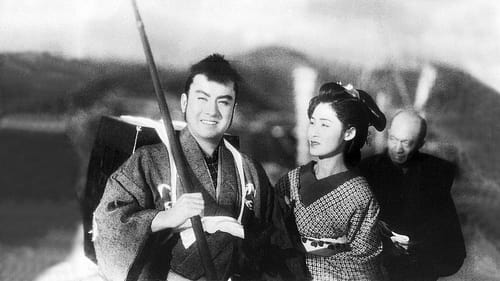
The film tells about the life of the former vassal of the Ako clan - Fuwa Katsuemon Masatane.

Zusho Shozaemon
Japanese film.

dir: Teinosuke Kinugasa

Dobu
An onnagata (female impersonator) of a Kabuki troupe avenges his parents' deaths. Remade in 1963 as Yukinojô Henge.


Uesugi Family Elder
This 1932 adaptation is the earliest sound version of the ever-popular and much-filmed Chushingura story of the loyal 47 retainers who avenged their feudal lord after he was obliged to commit hara-kiri due to the machinations of a villainous courtier. As the first sound version of the classic narrative, the film was something of an event, and employed a stellar cast, who give a roster of memorable performances. Director Teinosuke Kinugasa was primarily a specialist in jidai-geki (period films), such as the internationally celebrated Gate of Hell (Jigokumon, 1953), and although he is now most famous as the maker of the avant-garde silent films A Page of Madness (Kurutta ichipeji, 1926) and Crossroads (Jujiro, 1928), Chushingura is in fact more typical of his output than those experimental works. The film ranked third in that year’s Kinema Junpo critics’ poll, and Joseph Anderson and Donald Richie noted that 'not only the sound but the quick cutting was admired by many critics.

A rare film which depicts the tragic fate of a Christian lord who fought for his fate in the Edo period. Of note is Utaemon Ichikawa's extraordinary memorable final scenes in which he takes on his enemy with a gash in his forehead and a wild, unkempt mane.

Rokubei
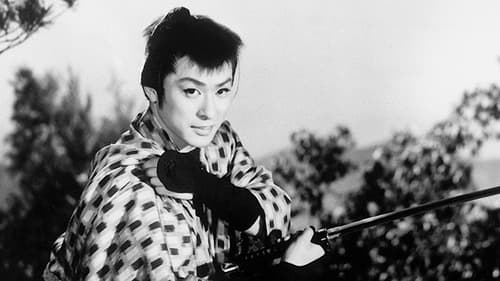
Hanjiro of Kusama searches for his little sister Oyuki, who went missing after being desecrated by Hikosaku Tokurai three years ago. The first film in a series about the adventures of the wandering yakuza Hanjiro from Kusama.
